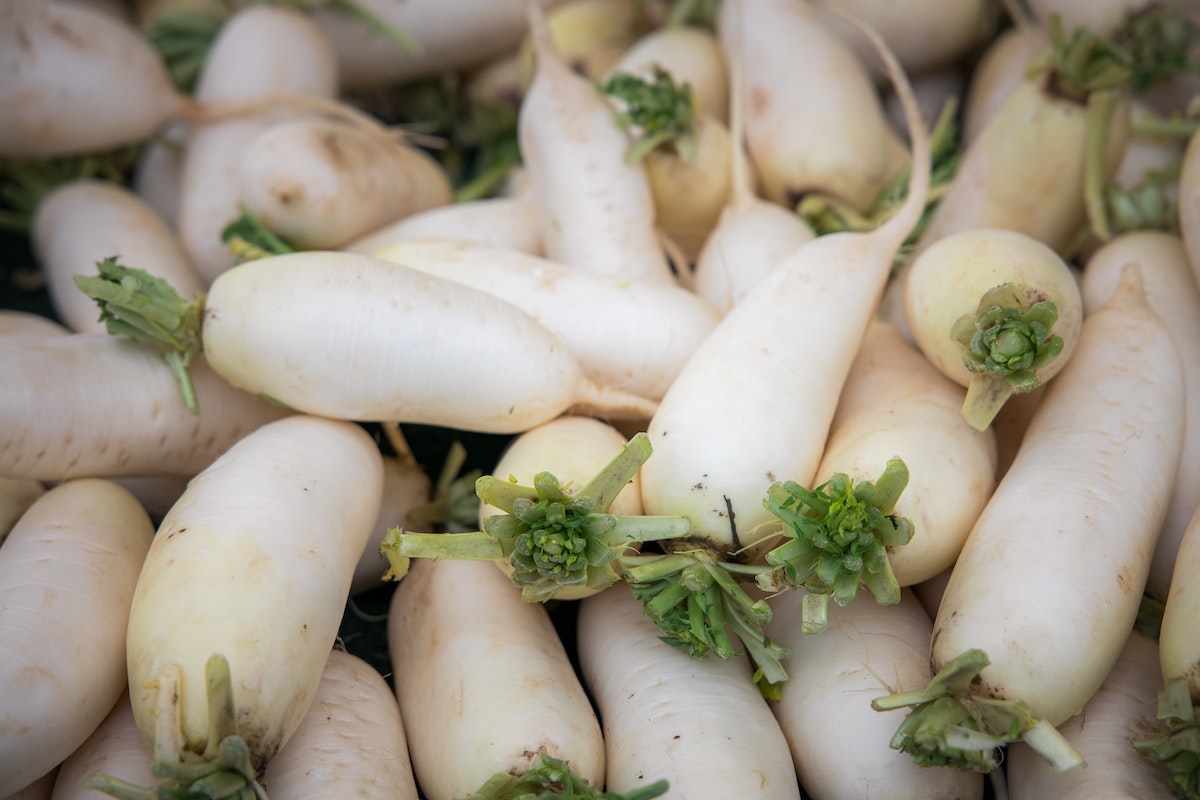Radish Nutrition's Hydrating, Detoxifying, and Heart-Healthy Properties

Introduction to radish nutrition
Radishes are an excellent source of hydration, containing 90% water by weight. They are also rich in electrolytes, making them a perfect choice for rehydrating after exercise or during hot weather.
One cup of radishes contains around 20% of the daily required amount of vitamin C, making them a good source of this vitamin (128 grams). An essential antioxidant, vitamin C maintains immunological health and assists in preventing cell damage.
Radishes contain several other vitamins and minerals, including potassium, magnesium, calcium, and phosphorus. These nutrients are essential for maintaining healthy blood pressure, bones, and muscles.
The fiber content of radishes can also help promote bowel regularity and may aid in preventing constipation and other digestive disorders.
The benefits of radish consumption
The vitamins and minerals vitamin C, folate, potassium, and calcium are all abundant in radishes. Furthermore, they provide a considerable amount of fiber and antioxidants.
Because they are so high in water, radishes are a great vegetable to eat to stay hydrated. They are an excellent option for people watching their weight because they are low in calories and fat.
Radishes contain sulfur compounds that can help detoxify the body and protect against cancer. The fiber in radishes can also help lower cholesterol levels and improve heart health.
The best ways to consume radishes
Radishes are versatile vegetables that can be eaten raw, roasted, or pickled. They are a good source of vitamins C and B6, potassium, and folic acid. Radishes are low in calories and fat but high in fiber, which makes them excellent food for weight loss or maintenance. Here are some tips on how to include radishes in your diet:
- Add raw radishes to salads or use them as a healthy garnish on soup or other dishes.
- Slice radishes thinly and roast them with other vegetables for a flavorful side dish.
- Make quick pickles by soaking radishes in vinegar and water overnight. Enjoy them as a condiment on sandwiches or burgers.
- Pure radishes with water or broth to make a detoxifying soup.
Radish recipes
There are so many delicious ways to work radishes into your meals! Here are some of our preferred dishes:
- Radish and Cucumber Salad: This refreshing salad is perfect for a summer picnic. Combine chopped radishes, diced cucumber, and a light dressing of your choice.
- Roasted Radishes: A simple way to enjoy the slightly sweet flavor of roasted radishes. Toss halved or quartered radishes with olive oil and sea salt, then roast in a preheated oven at 400 degrees for 15-20 minutes. Enjoy as is, or add them to your favorite salad or grain bowl.
- Sautéed Radishes: Sautéing brings out the natural sweetness of radishes. Radishes should be cooked in a pan with olive oil over medium heat for about 5 minutes or until they soften. Add garlic, salt, and pepper to taste. Serve as a side dish or add to other sautéed vegetables for a flavorful stir-fry.
Conclusion
Radishes are incredibly beneficial food for our bodies. Not only do they provide natural hydration and help with digestion, but their detoxifying powers can help flush out toxins from the body. At the same time, their anti-inflammatory properties promote heart health.
Furthermore, radish nutrition is packed with vitamins and minerals, which can bolster the immune system and support overall well-being. Radishes are a delicious addition to any plate that should be noticed!
